6 Nuts Seniors Should Avoid for Better Health (and Why)
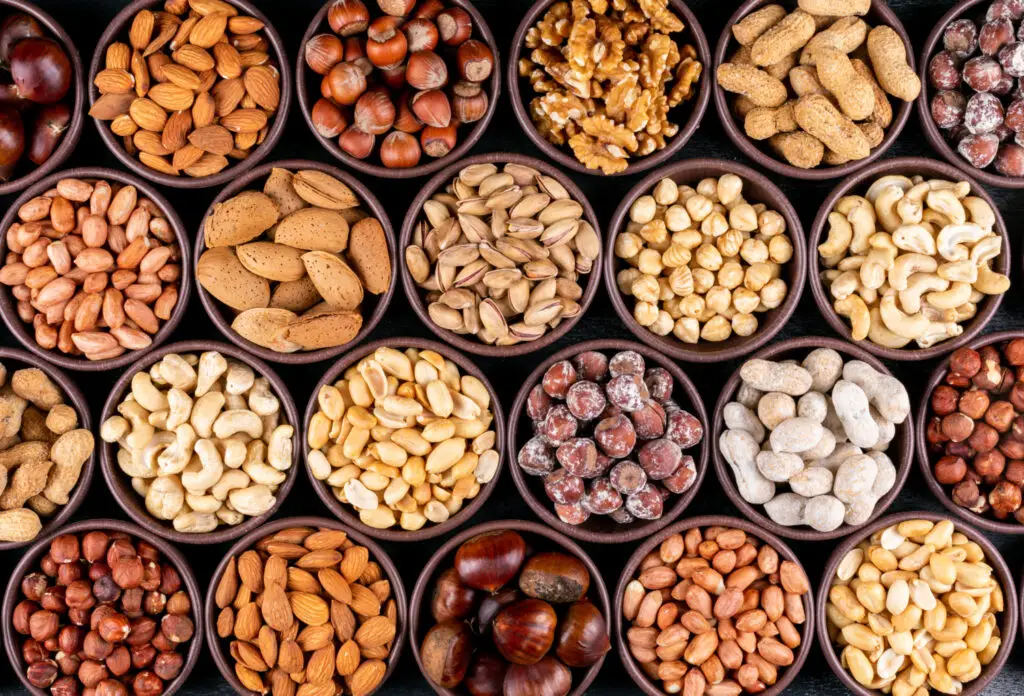
When you think of a healthy snack, nuts are probably near the top of the list. They are crunchy, satisfying, and full of protein, healthy fats, and important nutrients. For years, we have been told that a handful of nuts a day can do wonders for the heart, help control hunger, and even support brain health. And that is true—up to a point.
But as we get older, our bodies do not process foods the same way they once did. The metabolism slows down, the digestive system becomes a little more sensitive, and certain medical conditions make us more vulnerable to the hidden downsides of some foods. Nuts are no exception. While many varieties are good for you, some can cause problems if eaten too often or in the wrong form.
If you are in your 60s or beyond, you might want to take a closer look at which nuts you snack on. Here are six types of nuts seniors should consider limiting or avoiding, along with the reasons why. This is not about giving up nuts completely—it is about being smart, making small changes, and protecting your health in the long run.
1. Brazil Nuts
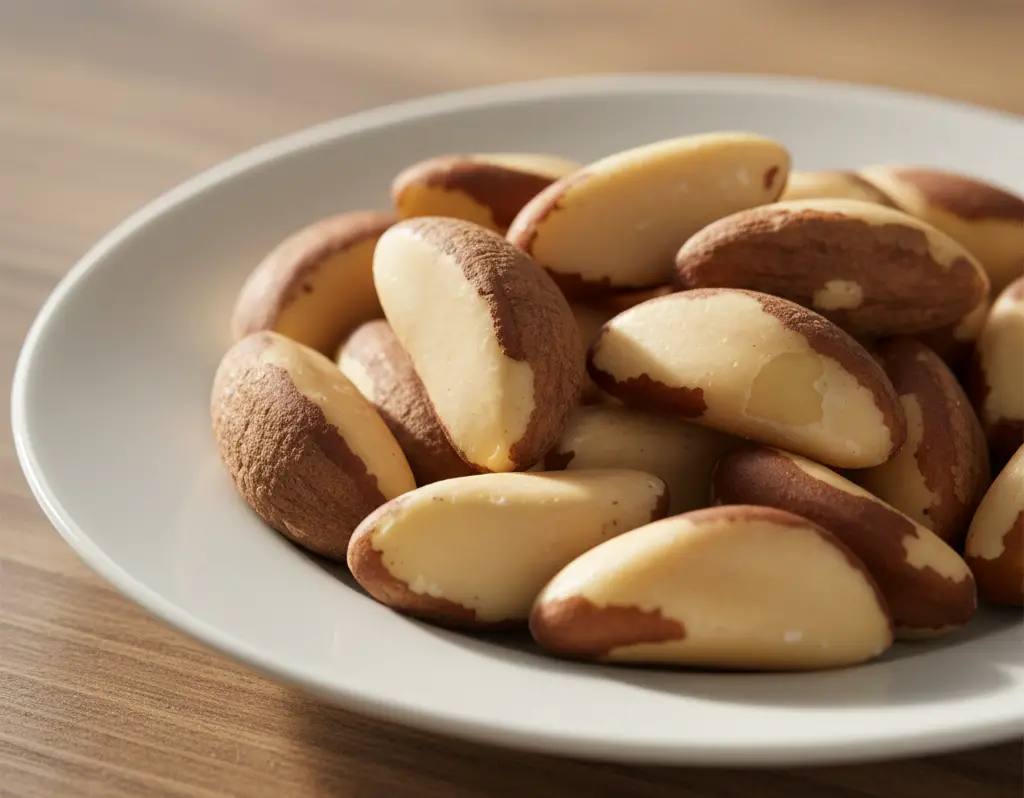
Brazil nuts are famous for being one of the richest natural sources of selenium, a mineral the body needs in small amounts. Here is the catch: they contain too much of it. Just one or two Brazil nuts can give you more than your entire daily requirement. Eat a whole handful and you might be way over the safe limit.
For seniors, this can be especially concerning. Too much selenium, known as selenosis, can cause nausea, brittle hair, nail issues, nerve pain, and in severe cases, heart and kidney problems. Since your body’s ability to process excess minerals changes with age, it is best to keep Brazil nuts as a once-in-a-while treat. If you love them, enjoy one or two at a time and leave it at that.
2. Salted or Oil Roasted Nut Mixes
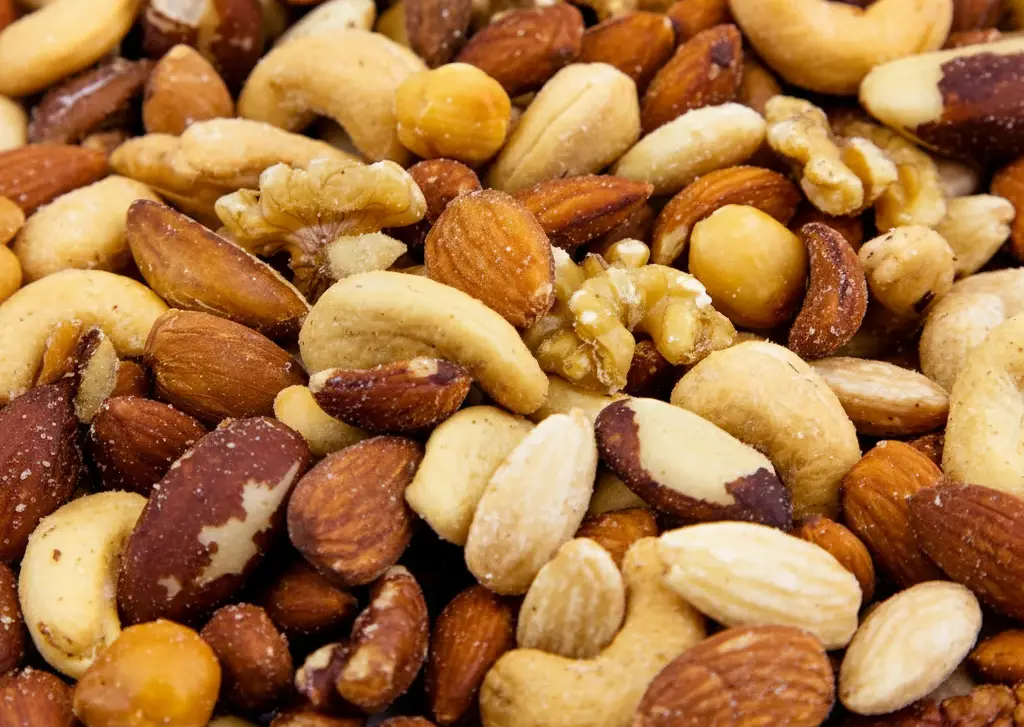
A bowl of mixed nuts at a party or game night might seem like a smart choice compared to chips or candy, but looks can be deceiving. Many of the nut mixes sold in stores are packed with extra salt, oils, and flavorings. That honey-roasted or barbecue coating may taste good, but it also adds sugar, sodium, and sometimes unhealthy oils that can work against your health goals.
High sodium intake is one of the biggest concerns for seniors, especially those managing blood pressure or heart health. Too much salt can increase your risk of hypertension and fluid retention. Oil roasted nuts often use low-quality oils that add unnecessary saturated fats to your diet. A better option is to buy plain, raw, or dry roasted nuts and season them yourself at home if you like a little flavor.
3. Peanuts
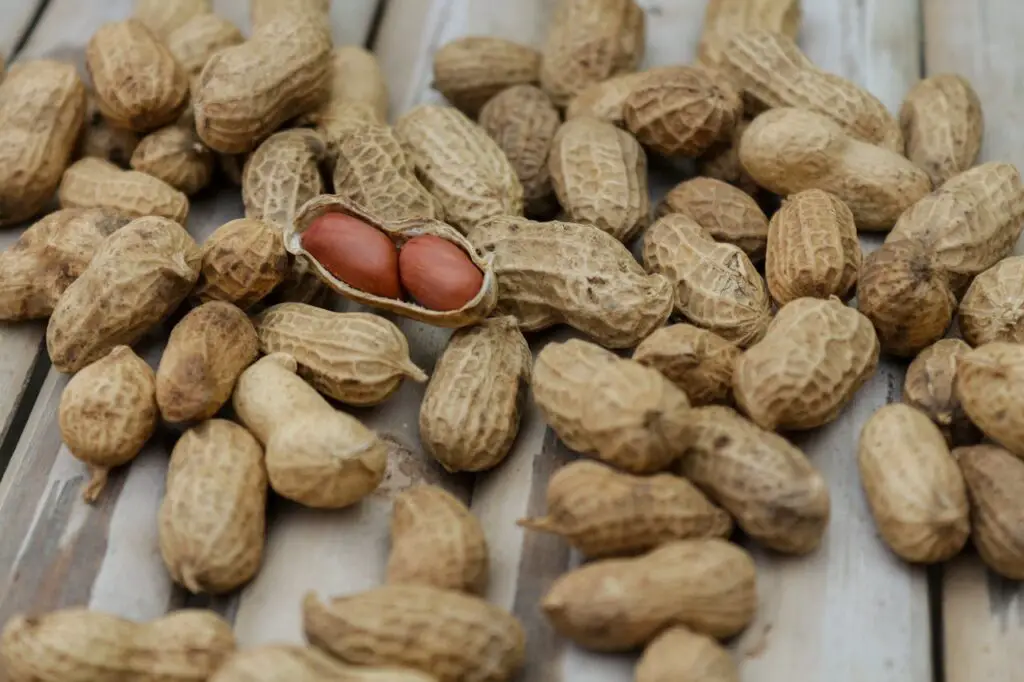
Even though peanuts are technically legumes, most of us treat them like nuts. They are affordable, popular, and easy to find just about anywhere. However, they come with a few potential drawbacks for seniors. Peanuts are more likely than most nuts to carry aflatoxins, which are toxins produced by certain molds when peanuts are stored in humid conditions. While commercial peanut products in the United States are usually tested and regulated, the risk still exists—especially with imported peanuts or cheaper brands.
Peanuts are also very calorie dense, which makes it easy to overeat them without realizing it. If you find yourself sitting in front of a bowl of peanuts, you may be surprised at how quickly the serving size adds up. For seniors with slower metabolisms or weight concerns, this can be a problem. Choose high-quality, U.S.-grown peanuts if you enjoy them, and try to stick to a small handful rather than mindless snacking.
4. Cashews
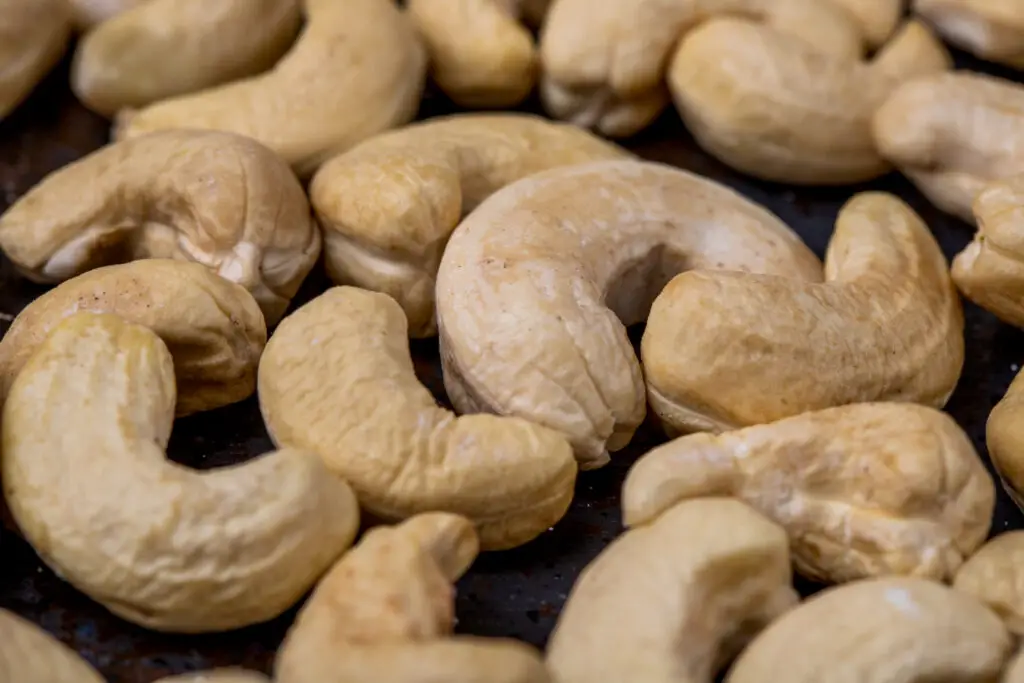
Cashews are creamy, versatile, and delicious, often used in nut butters, vegan sauces, and desserts. While they do have health benefits, they are not always the best choice for older adults. Cashews contain more saturated fat compared to many other nuts, and eating them in excess can raise cholesterol levels, which may not be ideal for seniors with heart concerns.
Salted or flavored cashews can make the problem worse by adding sodium or sugar on top of the fat content. Cashews are also known to cause digestive discomfort for some people when eaten in larger quantities, leading to bloating or gas. If you love cashews, there is no need to give them up entirely. Just choose unsalted, raw versions and stick to a modest portion—about one ounce or a small handful at a time.
5. Almonds
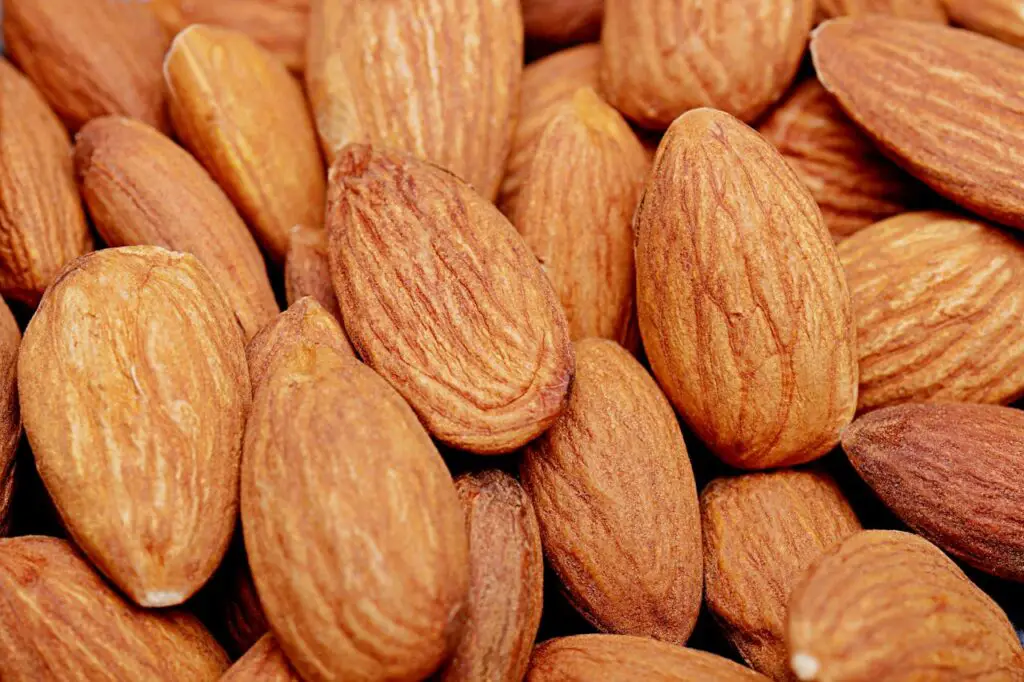
Almonds often carry the crown of “healthiest nut,” and they certainly have a lot going for them. They are rich in vitamin E, fiber, and healthy fats. But even with almonds, seniors should watch their intake. Almonds are high in phytic acid, which can interfere with the absorption of important minerals like calcium and magnesium. That is worth noting since older adults are already more prone to bone density issues.
Almonds also contain oxalates, compounds that can contribute to kidney stones in those who are susceptible. On top of that, it is easy to overeat almonds. A handful here and there may not seem like much, but eating them straight from a big bag can quickly add hundreds of calories to your day. Moderation is key. Keep portions to about a quarter cup and avoid heavily salted or sugar-coated varieties.
6. Pistachios
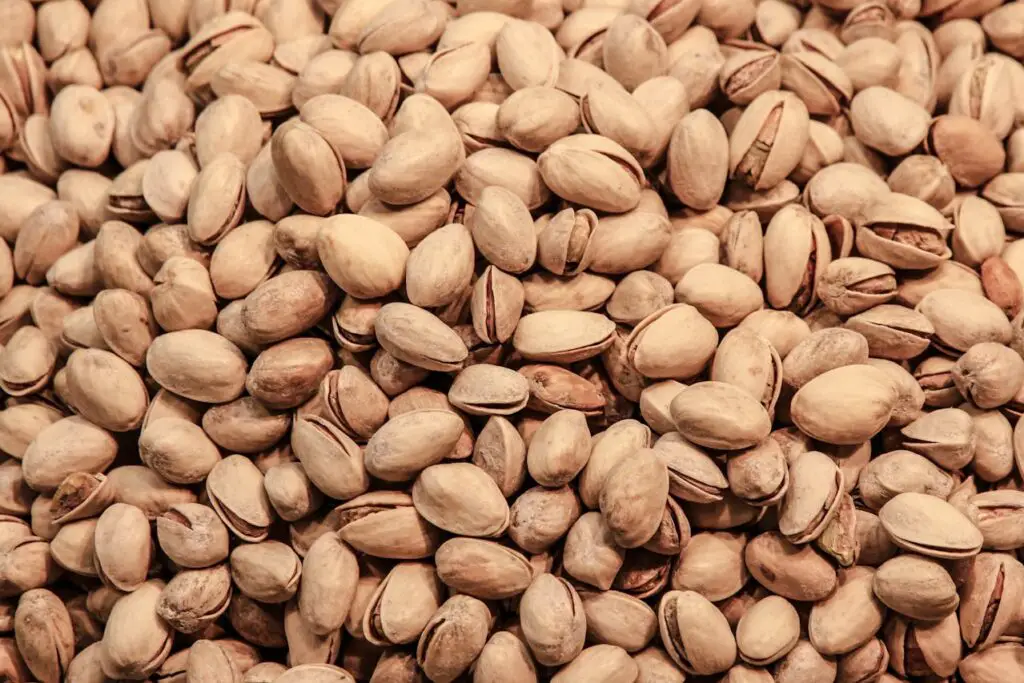
Pistachios are colorful, fun to crack open, and lower in fat than many other nuts, which makes them feel like a safe snack. But this can be misleading. Because they seem lighter, people often eat more of them than they realize. A big bowl of pistachios can quickly add up to a large calorie load, which may not be ideal if you are trying to manage your weight.
Like other nuts, pistachios are often sold salted or flavored, which adds unnecessary sodium. This is a concern for anyone with high blood pressure. In addition, pistachios contain potassium and phosphorus, which can be problematic for seniors with kidney issues. If you enjoy pistachios, stick to unsalted versions and measure your portion rather than snacking straight from the bag.
Final Thoughts
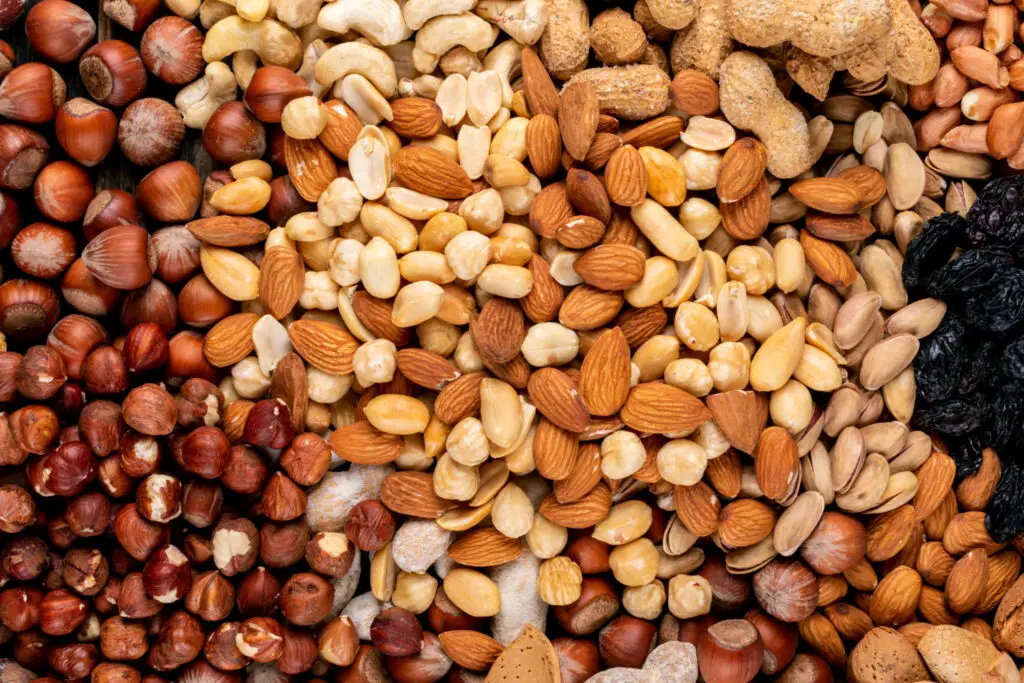
Nuts can be a wonderful part of a healthy diet, but they are not all created equal. For seniors, it is especially important to pay attention to portion sizes, preparation methods, and potential health risks. The six types of nuts listed here—Brazil nuts, salted mixes, peanuts, cashews, almonds, and pistachios—are not “bad” in themselves, but they can cause problems if eaten too often or in the wrong form.
The key is balance. A few nuts here and there can support your health, give you a tasty snack, and even make you feel full longer. But moderation is the golden rule. By being mindful and making small adjustments, you can continue to enjoy nuts without putting your health at risk.
So the next time you reach for that snack bowl, remember: a handful is plenty, and choosing wisely will help you stay strong, healthy, and energized well into your golden years.
Leave a Reply